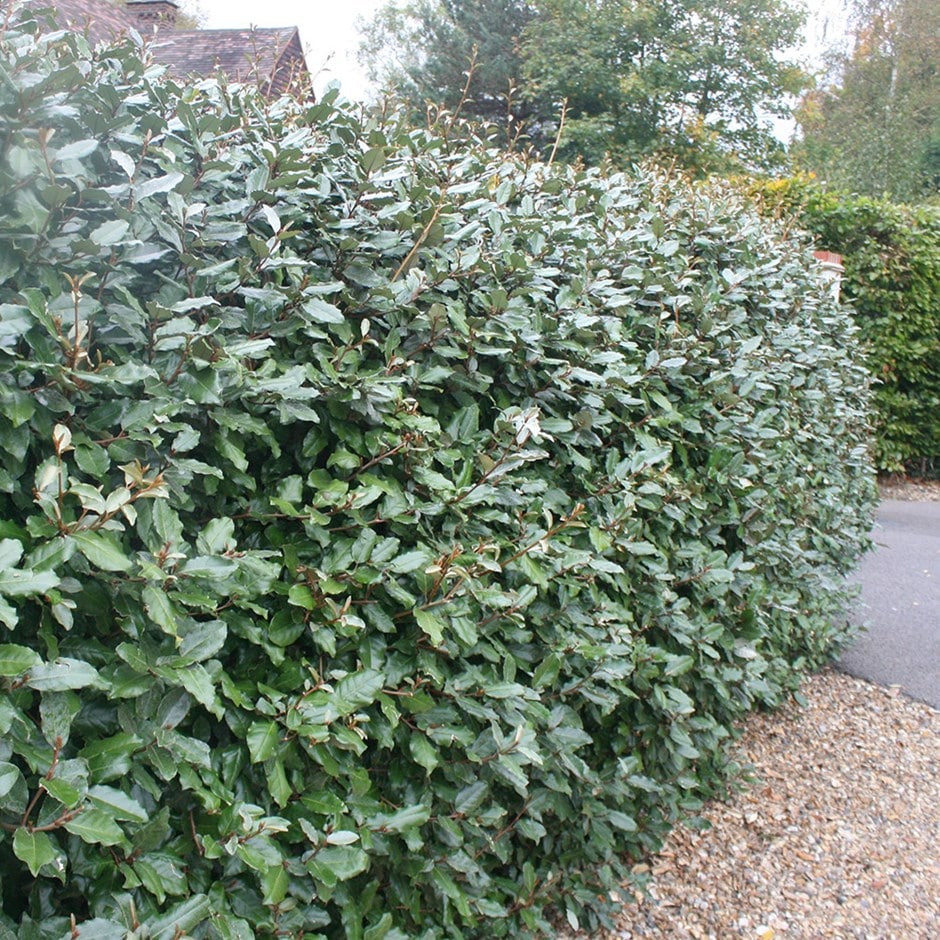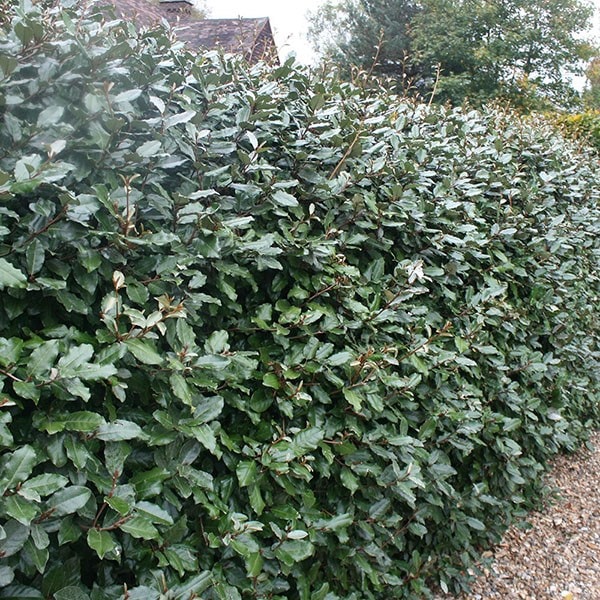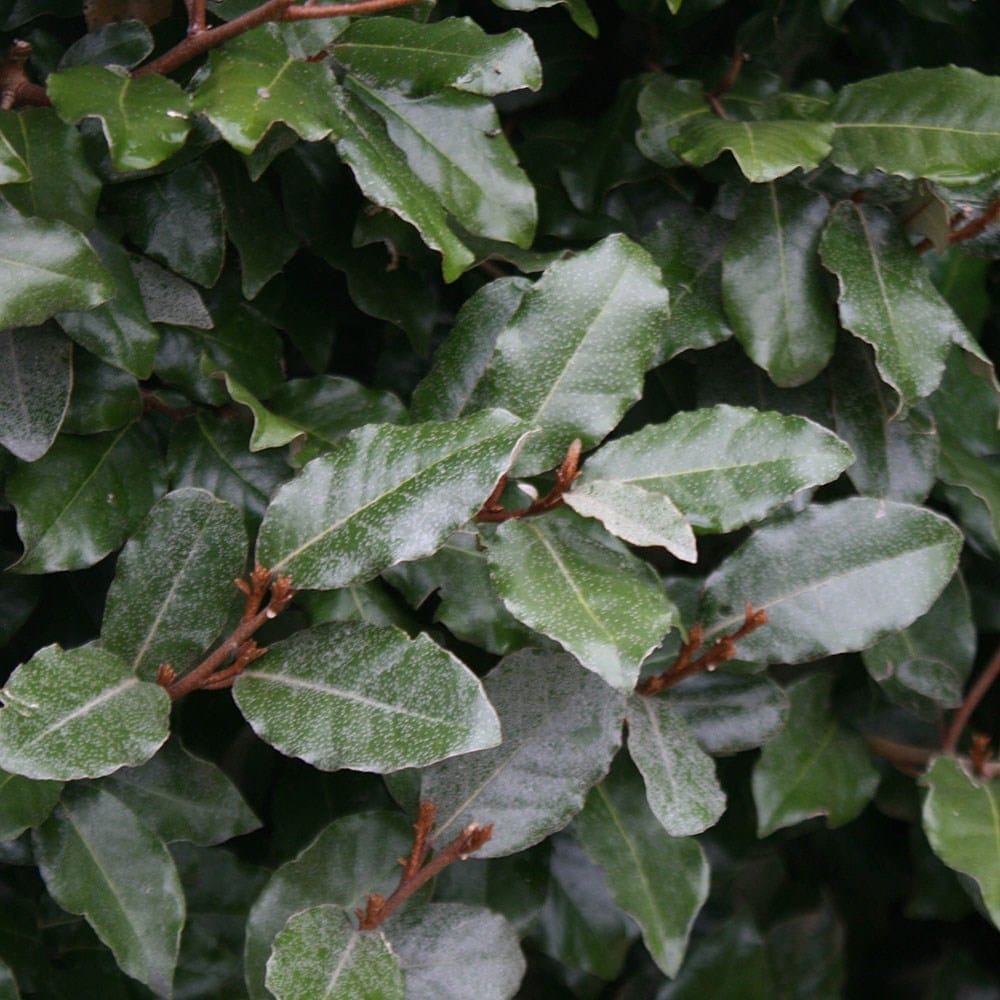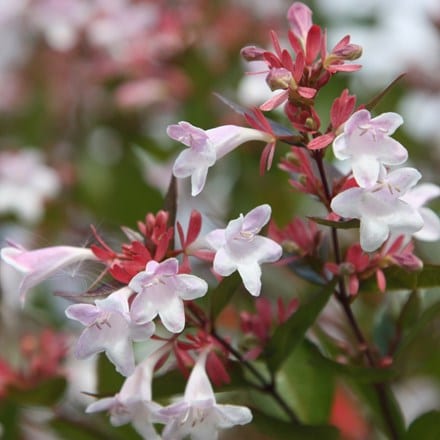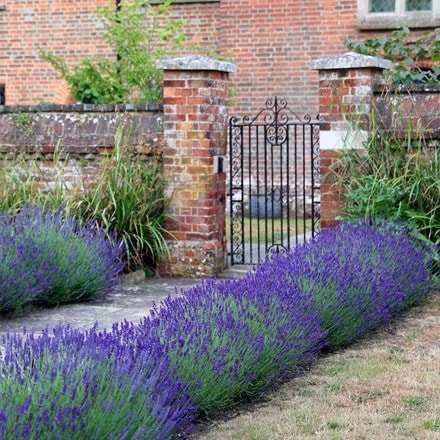Elaeagnus × submacrophylla
oleaster ( syn. Elaeagnus × ebbingei )
- 2 litre pot
- £26.99
- In stock (shipped within 2-3 working days)
- 3 × 2 litre pots
- £64.99 £21.66 each
- In stock (shipped within 2-3 working days)
- 12 litre pot | 60 - 100cm tall
- £79.99
- available to order from spring
- 3 × 12 litre pots | 60 - 100cm tall
- £179.99 £60.00 each
- available to order from spring
Delivery options
- Standard £1.00
- Position: full sun or partial shade
- Soil: moderately fertile, moist but well-drained soil
- Rate of growth: average to fast
- Flowering period: October to November
- Hardiness: fully hardy
Initially spotted, the leaves of this popular evergreen shrub mature to a lustrous green, but always retain their silvery undersides. In autumn, very small, but well-scented, creamy-white flowers open, filling the air with their delicious perfume.
Elaeagnus × submacrophylla is a versatile, shade-tolerant plant, perfectly suited to the shrub border, but also making a fine informal hedge. The foliage makes an excellent backdrop for showier ornamental plants, and is also useful for screening or linking areas of the garden. It also tolerates dry soil and salt-laden coastal winds.
To find out more about how to plant a hedge, click here
Elaeagnus × submacrophylla is a versatile, shade-tolerant plant, perfectly suited to the shrub border, but also making a fine informal hedge. The foliage makes an excellent backdrop for showier ornamental plants, and is also useful for screening or linking areas of the garden. It also tolerates dry soil and salt-laden coastal winds.
To find out more about how to plant a hedge, click here
Plant in well-drained soil in sun or partial shade. These tough evergreens tolerate poor soils, coastal conditions, and wind exposure once established. Water regularly in the first season to establish, then only in prolonged dry spells, as mature plants become more drought-tolerant.
Feed in spring with a balanced fertiliser to support healthy foliage growth. To keep hedging specimens tidy, cut back long or misplaced shoots with secateurs in late summer. Remove any plain green-leaved shoots promptly, cutting them back to the point of origin (just above a strong growing point) to preserve variegated forms.
After flowering in mid-summer, reduce the flowered shoots to strong buds or younger lower growth. Apply a 5-7cm (2-3in) mulch of well-rotted compost or manure after pruning to conserve moisture and enrich the soil.
Feed in spring with a balanced fertiliser to support healthy foliage growth. To keep hedging specimens tidy, cut back long or misplaced shoots with secateurs in late summer. Remove any plain green-leaved shoots promptly, cutting them back to the point of origin (just above a strong growing point) to preserve variegated forms.
After flowering in mid-summer, reduce the flowered shoots to strong buds or younger lower growth. Apply a 5-7cm (2-3in) mulch of well-rotted compost or manure after pruning to conserve moisture and enrich the soil.
